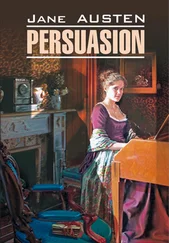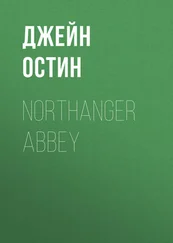As soon as divine service was over, the Thorpes and Allens eagerly joined each other; and after staying long enough in the pump-room to discover that the crowd was insupportable, and that there was not a genteel face to be seen, which everybody discovers every Sunday throughout the season, they hastened away to the Crescent [37] Crescent – « Полумесяц» – архитектурный ансамбль в Бате; построен по проекту Джона Вуда-младшего в 1767–1774 гг.
, to breathe the fresh air of better company. Here Catherine and Isabella, arm in arm, again tasted the sweets of friendship in an unreserved conversation; they talked much, and with much enjoyment; but again was Catherine disappointed in her hope of reseeing her partner. He was nowhere to be met with; every search for him was equally unsuccessful, in morning lounges or evening assemblies; neither at the Upper nor Lower Rooms, at dressed or undressed balls [38] at dressed or undressed balls – ( уст. ) на парадных и непарадных балах
, was he perceivable; nor among the walkers, the horsemen, or the curricle-drivers of the morning. His name was not in the pump-room book, and curiosity could do no more. He must be gone from Bath. Yet he had not mentioned that his stay would be so short! This sort of mysteriousness, which is always so becoming in a hero, threw a fresh grace in Catherine’s imagination around his person and manners, and increased her anxiety to know more of him. From the Thorpes she could learn nothing, for they had been only two days in Bath before they met with Mrs. Allen. It was a subject, however, in which she often indulged with her fair friend, from whom she received every possible encouragement to continue to think of him; and his impression on her fancy was not suffered therefore to weaken. Isabella was very sure that he must be a charming young man, and was equally sure that he must have been delighted with her dear Catherine, and would therefore shortly return. She liked him the better for being a clergyman, “for she must confess herself very partial to the profession [39] very partial to the profession – ( уст. ) весьма неравнодушна к людям этой профессии
”; and something like a sigh escaped her as she said it. Perhaps Catherine was wrong in not demanding the cause of that gentle emotion – but she was not experienced enough in the finesse of love, or the duties of friendship, to know when delicate raillery was properly called for, or when a confidence should be forced.
Mrs. Allen was now quite happy – quite satisfied with Bath. She had found some acquaintance, had been so lucky too as to find in them the family of a most worthy old friend; and, as the completion of good fortune, had found these friends by no means so expensively dressed as herself. Her daily expressions were no longer, “I wish we had some acquaintance in Bath!” They were changed into, “How glad I am we have met with Mrs. Thorpe!” and she was as eager in promoting the intercourse of the two families, as her young charge and Isabella themselves could be; never satisfied with the day unless she spent the chief of it by the side of Mrs. Thorpe, in what they called conversation, but in which there was scarcely ever any exchange of opinion, and not often any resemblance of subject, for Mrs. Thorpe talked chiefly of her children, and Mrs. Allen of her gowns.
The progress of the friendship between Catherine and Isabella was quick as its beginning had been warm, and they passed so rapidly through every gradation of increasing tenderness that there was shortly no fresh proof of it to be given to their friends or themselves. They called each other by their Christian name, were always arm in arm when they walked, pinned up each other’s train for the dance, and were not to be divided in the set; and if a rainy morning deprived them of other enjoyments, they were still resolute in meeting in defiance of wet and dirt, and shut themselves up, to read novels together. Yes, novels; for I will not adopt that ungenerous and impolitic custom so common with novel-writers, of degrading by their contemptuous censure the very performances, to the number of which they are themselves adding – joining with their greatest enemies in bestowing the harshest epithets on such works, and scarcely ever permitting them to be read by their own heroine, who, if she accidentally take up a novel, is sure to turn over its insipid pages with disgust. Alas! If the heroine of one novel be not patronized by the heroine of another, from whom can she expect protection and regard? I cannot approve of it. Let us leave it to the reviewers to abuse such effusions of fancy at their leisure, and over every new novel to talk in threadbare strains of the trash with which the press now groans. Let us not desert one another; we are an injured body. Although our productions have afforded more extensive and unaffected pleasure than those of any other literary corporation in the world, no species of composition has been so much decried. From pride, ignorance, or fashion, our foes are almost as many as our readers. And while the abilities of the nine-hundredth abridger of the History of England [40] History of England – «История Англии», многотомная работа ирландского поэта, писателя, физика Оливера Голдсмита (1730–1774)
, or of the man who collects and publishes in a volume some dozen lines of Milton [41] Milton – Джон Милтон (1608–1674), английский поэт, публицист, более всего известный своей поэмой «Потерянный рай»
, Pope, and Prior [42] Prior – Мэтью Прайор (1664–1721), английский поэт, дипломат
, with a paper from the Spectator [43] the Spectator – «Очевидец», британский журнал, созданный Дж. Эддисоном и Р. Стилом
, and a chapter from Sterne [44] Sterne – Лоренс Стерн (1713–1768), англо-ирландский романист, английский священник
, are eulogized by a thousand pens – there seems almost a general wish of decrying the capacity and undervaluing the labour of the novelist, and of slighting the performances which have only genius, wit, and taste to recommend them. “I am no novel-reader – I seldom look into novels – Do not imagine that I often read novels – It is really very well for a novel.” Such is the common cant. “And what are you reading, Miss —?”
“Oh! It is only a novel!” replies the young lady, while she lays down her book with affected indifference, or momentary shame. “It is only Cecilia , or Camilla , or Belinda [45] Cecilia , or Camilla , or Belinda – «Цецилия, или Воспоминания наследницы», «Камилла, или Воплощенная юность», романы английской писательницы Френсис Берни (1752–1849); «Белинда», роман англо-ирландской писательницы Марии Эджворт (1767– 1849)
”; or, in short, only some work in which the greatest powers of the mind are displayed, in which the most thorough knowledge of human nature, the happiest delineation of its varieties, the liveliest effusions of wit and humour, are conveyed to the world in the best-chosen language. Now, had the same young lady been engaged with a volume of the Spectator , instead of such a work, how proudly would she have produced the book, and told its name; though the chances must be against her being occupied by any part of that voluminous publication, of which either the matter or manner would not disgust a young person of taste: the substance of its papers so often consisting in the statement of improbable circumstances, unnatural characters, and topics of conversation which no longer concern anyone living; and their language, too, frequently so coarse as to give no very favourable idea of the age that could endure it.
Читать дальше
Конец ознакомительного отрывка
Купить книгу












